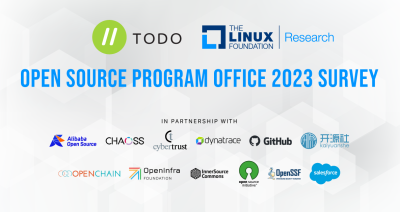GitHub at the UN Internet Governance Forum
Last week, GitHub joined the Internet Governance Forum to spread awareness of developers’ initiatives and public policy interests.

Last week, GitHub joined the Internet Governance Forum (IGF) to spread awareness for developers’ initiatives and public policy interests with the global technology policy community. IGF is an annual, open United Nations (UN) meeting for members of civil society, government, and the private sector to discuss the future of the internet. GitHub co-hosted three panels on open source and digital sovereignty, open source participation initiatives, and content moderation practices guided by human rights. We are proud to have joined these discussions to represent the interconnected global open source community.
Leveraging open source for digital sovereignty
As policymakers around the world consider how to enact effective tech regulation and promote local digital opportunity, the contribution of open source software (OSS) is often overlooked. Together with OpenForum Europe (OFE), GitHub hosted a panel discussion on open source collaboration for digital sovereignty to identify the ways the global open source community supports government goals.
- Paula Grzegorzewska, Strategic Partnerships Director at OFE, began the panel with a brief presentation of results from the recent European Commission-sponsored study that found OSS contributes between €65-95 billion to the European Union’s gross domestic product.
- Mike Linksvayer, Head of Developer Policy at GitHub, observed that while OSS can be embraced by governments as a strategic effort to achieve digital sovereignty with a host of benefits to local communities, tech adversarialism could cut off open source collaboration communities and lead to underinvestment in OSS as a global commons.
- Laurence Moroney, Lead Artificial Intelligence Advocate at Google, presented on efforts to widen access and opportunity from AI to boost local economies, via OSS, particularly open access education materials and certifications and TensorFlow 2.0 that was oriented towards software developers.
- Nataliya Langburd Wright, Ph.D. Researcher at Harvard Business School, explained how OSS can support national entrepreneurship ecosystems. She presented a cross-country study that found increases in national commits and contributors on GitHub boost a variety of entrepreneurship measures, including the number of new startups.
- Abhishek Singh, Head of the Government of India’s eGovernance Division, shared his nation’s experience embracing OSS and its distinct benefits, which include driving a culture of innovation, crowdsourcing improvements to government systems, enabling the government to better meet the needs of its citizens, and empowering governments to expand sovereignty by sharing successful approaches globally. Singh noted that a key challenge for open source collaboration is addressing misconceptions in order to build trust.
- On the subject of trust, Jeremy (Zhihui) Liang, Deputy Secretary of the China OSS Promotion Union, shared the evolution of the open source ecosystem in China and argued that OSS can improve trust among digital sovereignty partners and build skills and companies that support national digital economies.
Inclusive governance and open source
Communities and organizations around the world are pioneering efforts on inclusion in OSS. GitHub and the World Health Organization (WHO) co-hosted a panel discussion featuring models of open source participation and how they might provide insight for more inclusive internet governance.
- Mala Kumar, GitHub’s Director of Tech for Social Good, began the session with a brief overview of GitHub’s research on OSS in the Social Sector, and spoke to the importance of inclusive design that considers the needs of the people using an open source tool when it is being developed.
- Samson Goddy, Co-Founder of Open Source Community Africa, discussed his experience founding and scaling his organization and its mission to localize OSS to the context of African communities. Supporting as many languages as possible—Africa has more than 2,000 distinct languages—is a significant challenge for their goal of diverse participation.
- Kriti Mittal, Entrepreneur in Residence at Omidyar India, described their Open Digital Ecosystems effort and how to design open government-citizen platforms. Mittal observed that these initiatives need to balance innovation while protecting citizens and embrace the power of communities for transparency, accountability, and localization of OSS.
- According to Dušan Milovanović, Chief Intelligence Architect for the WHO, the organization’s open source efforts were spurred by another crisis: the 2015 Ebola outbreak, which required better global health coordination. The WHO’s newly announced Hub for Pandemic and Epidemic Intelligence will seek to strengthen knowledge about pandemics with the same goal, detect and address outbreaks, using a new approach: collaborative intelligence.
Shaping content moderation with human rights frameworks
With more people and more of life’s activities moving online, platforms are increasingly in the position to make content governance decisions with real-life consequences. Together with Ranking Digital Rights and Article 19, GitHub co-hosted a panel discussion on the use of human rights frameworks to inform content moderation. The panel was moderated by Veszna Wessenauer, Research Manager at Ranking Digital Rights.
- Abby Vollmer, Director of Platform Policy at GitHub, explained GitHub’s developer-first approach to content moderation. The GitHub approach uses human rights as a baseline for developing rules and applies the least restrictive measures it can, which is in line with the principle of proportionality. She noted that context can be especially important for content moderation, including how visible content is given its placement on the platform.
- Berges Malu, Public Policy Director at Sharechat, described his platform’s approach to content takedowns and virality for its 300 million users. He noted that there are limits to free speech on private platforms and that platforms need to be transparent about their content moderation practices.
- Vladimir Cortés, Digital Rights Program Officer at Article 19, recognized that while platforms are private companies, they function as public squares and should consider that takedowns can infringe on human rights. Cortés referenced a recent UN Human Rights Committee interpretation of the right to peaceful assembly, which defined the scope of assembly as both physical meetings and virtual or online gatherings, as evidence that companies face obligations under human rights law.
- Brenda Dvoskin, PhD Researcher at Harvard Law School, presented a critical take on the topic, arguing that human rights frameworks have been used as stand-ins for public interest, although such frameworks are not necessarily in line with the public interest.
- Allison Davenport, Senior Public Policy Counsel at Wikimedia, spoke to the challenge of applying content standards to user communities, like Wikipedia’s, where wikis are separated by languages, not national boundaries and oftentimes develop their own community standards. While human rights frameworks are not the final word in content governance, they can be a good foundation for international platforms.
GitHub hosts more than 73 million developers collaborating on open source projects across the world, and we see the interconnected global open source community as an important resource to address our greatest challenges. With developers at the center of our approach to policy, we are committed to representing the interests of developers and the open source community at international fora, like IGF, and contributing to a more collaborative, open internet.
Written by
Related posts

Apply now for GitHub Universe 2023 micro-mentoring
As part of our ongoing commitment to accelerate human progress through Social Impact initiatives, we’re offering students 30-minute, 1:1 micro-mentoring sessions with GitHub employees ahead of Universe.

The 2023 Open Source Program Office (OSPO) Survey is live!
Help quantify the state of enterprise open source by taking the 2023 OSPO survey.

Godot 4.0 Release Party 🎉
We are delighted to host the Godot 4.0 Release Party at GitHub HQ on Wednesday, March 22 from 6:30 pm to 9:30 pm. And you’re invited!